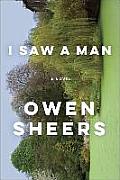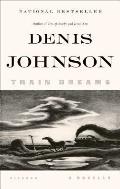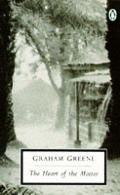
Describe your latest book.
I Saw a Man is a contemporary novel set between London, New York, Nevada, and Wales. The book opens with Michael Turner, a young widower, entering the house of his neighbors, the Nelsons, by the back door. Michael believes there is no one at home, but he is wrong. What happens in the next few minutes changes his, and the lives of the Nelsons, forever.
Michael's journey through the Nelsons' house forms the spine for the first half of I Saw a Man, from which the narrative looks back to his brief marriage to TV reporter Caroline, his grief in the wake of her death, and his moving from their cottage in Wales to a flat in London. Following his move, despite (or perhaps because?) the Nelsons appearing to represent everything Michael has lost, he quickly forms a close bond with Josh and Samantha and their two daughters. This bond promises to be the mainstay of his emotional healing, until, one day, thinking their house is empty, he enters their back door.
From the moment of the event inside the Nelsons' house, the novel gains a strong forward momentum, with Michael having to remain living beside his neighbors while bearing the weight of a terrible secret and a desperate desire to atone.
The Nevada element of the story concerns Major Daniel McCullen, a U.S. drone pilot operating out of Creech Air Force Base in the desert outside Las Vegas. Daniel has chosen to switch from flying planes to flying drones in an attempt to stop the conflict in Afghanistan from further disrupting his family life. He discovers, however, that in returning every evening from Creech, far from protecting his family from the war, he is actually bringing it closer.
It is Daniel's actions that set the stories of I Saw a Man in motion, and I suppose on one level my intention in writing this novel was to create an intimate, domestic story about our contemporary globalized world, and specifically about the tensions between our increasing engagement in cause and disengagement in effect. I also hope I Saw a Man is a morally complex story that asks questions about the nature of witness, when an admission of guilt might be a selfish, rather than altruistic act, and how motivations of love can all too often lead to actions of violence.
What's the strangest or most interesting job you've ever had?
For the summer of my second year at Oxford University, I was a rickshaw driver. The local cab companies objected to the possible competition, so in effect we were tourist guides and had to stick to a specific route around the city. The company was run by an eccentric woman who'd brought over a fleet of very expensive rickshaws from India. We had a stand in the center of town on Broad Street, outside Balliol College, from where we touted for business.
This was back in the late '90s and rickshaws weren't common sights on U.K. streets, as they are now in many city centers. So it was a strange old summer — cycling round, sometimes with two large tourists in the back, giving my tour of Oxford history while also countering numerous questions, calls, or angry comments from drivers and pedestrians. It led to some interesting situations, though. Val Kilmer was filming The Saint in the city at the time, so I took him around once. Then Raymond Blanc used us for the opening of his new restaurant, and I ended up taking him and Richard Branson up to Summertown. They were remarkably indiscreet in their conversation... By the end of the summer, with business not great, our owner was having to increasingly diversify, and by the last few weeks we were doing pub crawls for hen parties. The first few pubs were fine, but by the end of the night it got harder and harder to cycle with two drunk women grabbing at you from behind.
How did the last good book you read end up in your hands, and why did you read it?
My wife and I moved back to Wales a couple of years ago. It's where we're both from, and with a child on the way, we knew we wanted to be back in the hills of our own childhoods. However familiar the landscape and the people, though, it was still quite a transition. We'd both lived all over the world, and mostly in cities, so I think we had a few anxieties about what we might miss in terms of artistic conversation and engagement on moving to such a rural location. How wrong we were… Although our part of Wales is still very much a farming community, it's also full of artists and writers who live here much for the same reasons as we do. I mention this as, soon after we moved, myself and another local writer, Ben Rawlence, with this anxiety in mind, decided to start a writers' book club, as a way of ensuring we got together once a month and talked about writing. We anticipated we might find two or three other writers in the area to join us. Amazingly, after only our second meeting, we're already 11 in number.
 Our second book, which we've just discussed, was Denis Johnson's Train Dreams, and I loved it. I'd only ever heard Johnson talk about his novel Tree of Smoke, so this was the first of his works I'd read. It's both a simple and an audacious book. Following very much in the tradition of pared-back masculine American writing, it flares at points into moments of lyric beauty and surprising emotional intensity. In many ways, it is a slight book, but it is imbued with the scale of the landscape in which it is set and of the wave of grand American themes it rides.
Our second book, which we've just discussed, was Denis Johnson's Train Dreams, and I loved it. I'd only ever heard Johnson talk about his novel Tree of Smoke, so this was the first of his works I'd read. It's both a simple and an audacious book. Following very much in the tradition of pared-back masculine American writing, it flares at points into moments of lyric beauty and surprising emotional intensity. In many ways, it is a slight book, but it is imbued with the scale of the landscape in which it is set and of the wave of grand American themes it rides.
Have you ever made a literary pilgrimage?
In many ways my first prose book, The Dust Diaries, was a literary pilgrimage, in that the book is threaded along my journey to Zimbabwe to trace the life and legacy of my great, great uncle, the poet, author, and missionary Arthur Shearly Cripps. The book opens with the end of that journey — me attending a three-day festival in his honor around his grave in the nave of a ruined church he built far out in the Zimbabwean veldt. At the time I was primarily driven on my journey by a desire to understand him, his conflicts, and the world in which he lived and tried to change. But dancing with hundreds of Zimbabweans at his graveside, I realized that my search for him had indeed been some kind of a pilgrimage, and for the same reason most other journeys of its kind are — because I set out on the road in search of two men, not one, looking for myself as well as for Arthur.
Since then it's often been filming that has taken me to poets' and writers' houses or graves. Back in 2009 I made a TV series called A Poet's Guide to Britain, which saw me make several "pilgrimages" as I explored the lives and works of the poets featured in the series. So in the space of a few months, I found myself beside the graves of Sylvia Plath, George Mackay Brown (who had the best epitaph — "Carve the runes, then be content with silence"), Lynette Roberts, William Wordsworth, Matthew Arnold, and Louis MacNeice. In documentaries about poets since, I've traveled to Dylan Thomas's grave and, most movingly for me, the grave in Normandy of poet Keith Douglas, killed by a shell three days after the D-Day landings.
What scares you the most as a writer?
Unoriginality. The stream of ideas drying up. The loss of memory and words. Of running out of time before you've written what you need to as well as you can. Arrogance.
Offer a favorite sentence or passage from another writer.
There are so many, in so many books and poems. There are certainly writers I return to, no longer for the story but for the cadence and weight of their sentences, their paragraphs. James Salter is one. Graham Greene another. Off the top of my head, the sentences that come to mind are a description of the sun setting over a port in The Heart of the Matter:
Scobie stopped his Morris at one of the great loops of the climbing road and looked back. He was just too late. The flower had withered upwards from the town; the white stones that marked the edge of the precipitous hill shone like candles in the new dusk.
 Share an interesting experience you've had with one of your readers.
Share an interesting experience you've had with one of your readers.
On a return trip to Zimbabwe, I made a diversion to visit Arthur Cripps's grave again. It had been a difficult time in the country and many of the people I'd known had either died or moved away. The land on which his ruined church stood had been requisitioned by the government, so I wasn't even sure if I'd be able to get near the grave, let alone see it again. When I reached the clearing under the kopje where the church stood, however, I saw I was able to go to the graveside, because there was already another man there. It turned out he was a British aid worker who had read The Dust Diaries many years earlier. Realizing he was in the area where Arthur Cripps had lived and worked, he'd asked his driver to bring him to the church. He'd just got there, miles out in the veldt, when the book's author, and relative of Arthur's, turned up beside him! It was a very special moment. I'd written the book and he'd read it, so we didn't have to say much about the man in the grave below us. We both knew why we were there, and what kind of a person Arthur had been, so mostly we enjoyed the moment in silence.
Introduce one other author you think people should read, and suggest a good book with which to start.
The wonderful poet Dannie Abse. He was a playwright and a novelist too, but I'd start with his poems. Humanistic, wide-ranging, honest, questioning, and loving. His voice is both humorous and needling, wise and anecdotal, conversational and musical. Dannie died recently at the age of 91. The poems in his collected poems, Ask the Moon, span over 70 years of writing and living. I've often found them to be useful guiding lights in literature and life, and I hope others do too.
How do you relax?
By running in parks or getting out into the hills, either with my daughter on my back or alone on foot or horseback. Reading in the bath. Doing some kind of physical work outside. Also watching Orange Is the New Black beside the fire with my wife...
Five great books about men in (and out of) marriage:
At various stages of the novel, the three male characters in I Saw a Man all project versions of themselves in relation to their respective marriages. For Michael his amputated marriage held the promise to make him, to complete whatever had been the missing element in his being. With the loss of Caroline, the marriages of others come to fascinate him, partly as visions of what he will now never have. For Josh and Daniel, married life is at the heart of their endeavors, but it is also what they both risk and what marks the nature of their falling.
Here below are five books in which men in marriage, for good and for ill, are written with great (and sometimes painful) insight and nuance.
1. Young Hearts Crying by Richard Yates
2. Jude the Obscure by Thomas Hardy
3. Two for Joy by Dannie Abse
4. Letter to D by Andre Gorz
5. Light Years by James Salter